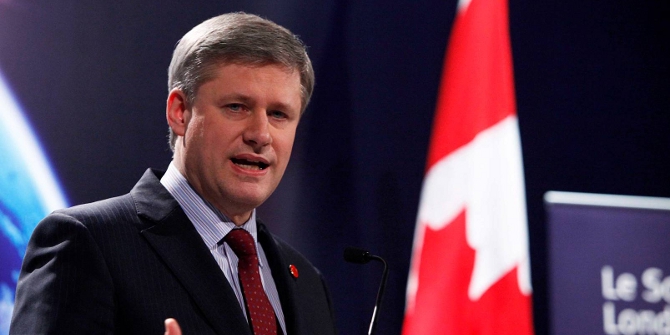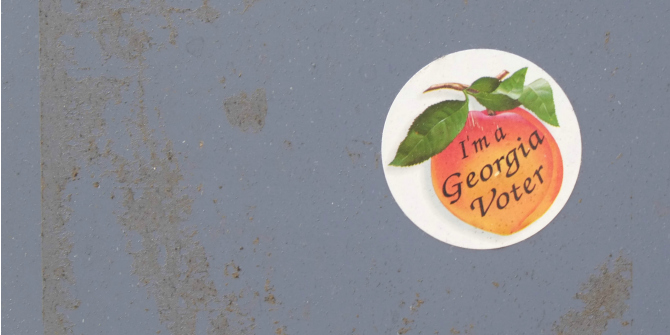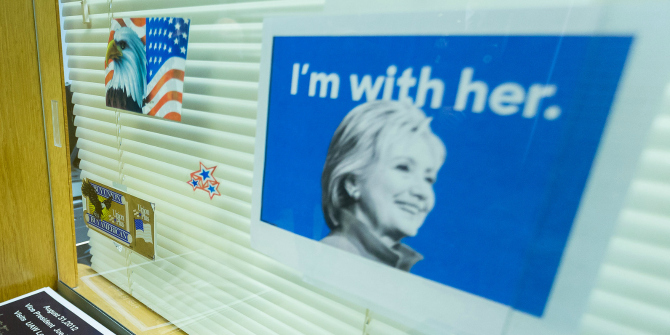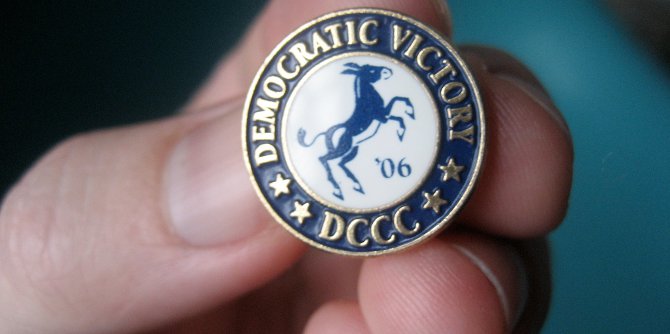 The Canadian government has proposed new legislation to reform electoral law in areas such as voter identification, fraud and campaign finance. The reforms have provoked a fierce reaction, with over 150 political scientists signing a letter of protest. In this post Patti Tamara Lenard summarises the proposals and explains why she and other experts believe they will undermine the integrity of elections in Canada.
The Canadian government has proposed new legislation to reform electoral law in areas such as voter identification, fraud and campaign finance. The reforms have provoked a fierce reaction, with over 150 political scientists signing a letter of protest. In this post Patti Tamara Lenard summarises the proposals and explains why she and other experts believe they will undermine the integrity of elections in Canada.
The Canadian government has tabled a bill with the title “Fair Elections Act” (known as Bill C-23) a title which many commentators have characterized as Orwellian. If passed, the bill will seriously damage the fairness and transparency of Canadian federal elections and diminish Canadians’ political participation.
Canadian elections are overseen by Elections Canada, an independent agency that is responsible for monitoring federal elections in Canada. Canadians trust in their democratic process in part because Elections Canada ensures the fair and impartial administration and enforcement of our electoral laws.
Two events in our most recent federal election (2011) shook Canadians’ trust in their electoral processes. A first incident featured robocalls (automated telephone calls) made to hundreds of Canadian households, falsely informing voters that the location of polling stations had moved by Elections Canada. A second incident concerned a more standard type of electoral rule violation: Canadian political parties are subject to campaign spending limits, and the Conservative Party was found guilty of exceeding allowable spending caps for electoral advertising.

These incidents have prompted widespread agreement among Canadian political experts that some modifications to Canadian electoral laws are called for. The government’s proposed Bill increases the penalties for electoral fraud, which is a step in the right direction. But, it does not provide Elections Canada with the tools it has explicitly requested to investigate fraud. Additionally, it introduces many more substantial changes, which demand full parliamentary and public debate. Unlike in the UK, where advance consultation with the Electoral Commission is required by law before changing some election procedures, Elections Canada was not consulted on Bill C-23.
There are four changes the law proposes to make that are particularly worrisome.
1. Voter identification: Voter Information Cards (VICs) and Vouching
The Bill proposes to dispense with the use of VICs as a piece of identification that voters can use (in tandem with another piece of officially recognized ID) to prove their identity and address. The use of voter cards is especially important for Canadians who lack ID that proves their current address, such as students, senior citizens in long-term care facilities, First Nations citizens, and those who have recently moved. Although not perfect, VICs are more likely to provide an accurate address than most other forms of ID, including drivers’ licenses. The elimination of VICs as a valid form of ID in federal elections will reduce voter turnout.
Currently, Elections Canada protects the right to vote of citizens who lack standard forms of identification by allowing them to take an oath affirming their identity, citizenship, and residence in the polling division, and having a qualified voter from the same polling division vouch for their eligibility. In 2011, approximately 120,000 citizens relied on the vouching provision in order to vote. By eliminating vouching, the Fair Elections Act would disenfranchise many of these citizens.
2. Ensuring fair elections
The Fair Elections Act would diminish the ability of Elections Canada to protect the fairness of the electoral process. The Bill proposes to remove the enforcement arm of the agency, headed by the Commissioner of Elections, from Elections Canada and moves it to the office of the Director of Public Prosecutions. Crucially, the details of any investigations conducted by the Commissioner would no longer be reported to the public or to Parliament by our Attorney General.
The Bill also fails to provide the Commissioner with the powers necessary to properly investigate electoral infractions. For example, the Commissioner would not have the power to compel witness testimony, a major stumbling block during the robocalls investigation described above. Nor would the Commissioner have the power to require political parties to provide receipts and other documentation about their spending, which makes it impossible to ensure compliance with spending limits. The Bill would prohibit Elections Canada from communicating with citizens about matters like the robocalls crisis, thereby reducing democratic transparency and accountability.
Election agencies around the world, including the Electoral Commission in the UK, often make public statements about issues of political engagement and participation. It is not unusual for them to publish research, engage in online recruitment of election officers, publish reports to parliament, report on political financing, and issue news releases. All these activities would be severely restricted by Bill C-23.
3. Campaign finance
The Bill would increase the amount that citizens can donate to a given campaign from $1200 per calendar year to $1500 per calendar year; more troubling is its proposed increase in the amount of money an individual can contribute to his or her own campaign from $1200 to $5000, creating a bias in favour of those with more personal wealth.
Worse, the Bill distinguishes fundraising from campaigning, and then exempts fundraising costs from campaign spending limits as long as fundraising is targeted at previous donors of more than $20. This introduces two biases into the campaign finance rules. First, it disadvantages parties whose donors can only contribute small amounts. Second, it favours parties that have built their donor lists over those that have not. Parties with longer lists of donors over the threshold could communicate, free of cost to their campaigns, with a larger number of electors than other parties.
Allowing money to influence electoral outcomes stands at odds with principles of political equality and democratic fairness. In contrast to the United States, Canada has consistently recognized that allowing money into the political arena prevents those without financial backing from being heard and discourages participation when citizens perceive that the playing field of politics tilts toward wealth. This feature of Canadian democracy deserves strong protection, not erosion of the sort introduced by Bill C-23.
4. Partisans at polling stations
Currently poll supervisors are appointed by Elections Canada. Their role is to oversee the election in each polling station. Electoral irregularities are often the result of partisan calculations by people working in polling stations. Yet, Bill C-23 requires Elections Canada to appoint central poll supervisors from lists of names provided by the candidate or party that came first in the last election, favouring incumbents and their parties. Supporters of the Bill argue that the Canada Elections Act already allows for candidates and parties to appoint other polling station officers. Yet, this does not provide a reason for expanding, rather than eliminating, a practice that undermines voter confidence in the electoral process.
These changes together serve to undermine rather than support the integrity of Canadian elections, in ways that cry out for a public response, both domestically and globally.
—
This post is modified from An Open Letter to Prime Minister Stephen Harper and the Parliament of Canada, which was printed in one of Canada’s national newspapers. The letter has been endorsed by over 150 professors of Canadian politics. The drafters of the letter were Monique Deveaux, Professor of Philosophy, University of Guelph, Melissa Williams, Professor of Political Science, University of Toronto, Maxwell Cameron, Professor of Political Science, University of British Columbia, Yasmin Dawood, Assistant Professor of Law, University of Toronto, Genevieve Fuji Johnson, Associate Professor of Political Science, Simon Fraser University, and the present author.
This article first appeared at the Democratic Audit of the UK blog.
Please read our comments policy before commenting.
Note: This article gives the views of the authors, and not the position of USApp– American Politics and Policy, nor of the London School of Economics.
Shortened URL for this post: http://bit.ly/1gV5n90
_________________________________
About the author
 Patti Tamara Lenard – University of Ottawa
Patti Tamara Lenard – University of Ottawa
Patti Tamara Lenard is Assistant Professor, Graduate School of Public and International Affairs, University of Ottawa.






